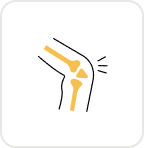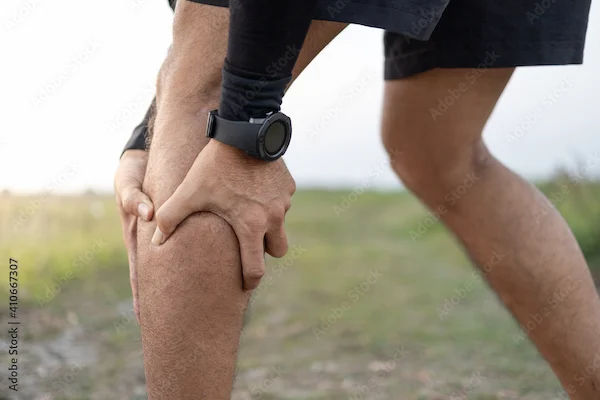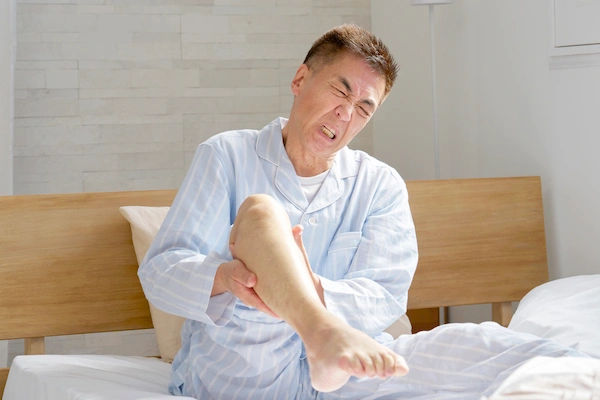Muscle Pain: Causes and Relief Guide
Explore common causes of muscle pain and effective relief methods. Learn when to seek help and how to manage muscle discomfort safely.

Written by Dr. Shaik Abdul Kalam
Reviewed by Dr. Mohammed Kamran MBBS, FIDM
Last updated on 13th Jan, 2026

Introduction
That dull ache in your shoulder after a long day at the computer. The sharp twinge in your calf when you push too hard on a run. The general soreness that seems to settle in after any unusual activity. Muscular pain is an almost universal human experience, but its commonality often leads us to dismiss it. We pop a painkiller, promise to stretch later, and hope it fades away. However, not all muscle pain is created equal. While most is benign and short-lived, some pain is your body's urgent distress signal, warning of a deeper issue. Ignoring these signals can turn a minor problem into a chronic, debilitating condition. This guide will help you decipher the messages your muscles are sending, from identifying common causes and effective home remedies to recognising the critical red flags that demand a doctor's attention. Understanding your pain is the first step toward effective relief and long-term health.
What is Muscular Pain? Understanding the Basics
Muscular pain, or myalgia, refers to discomfort or pain in any of the body's muscles. It can range from a mild, nagging annoyance to severe, debilitating agony. Fundamentally, it's helpful to categorise it into two main types.
Acute Muscle Pain: The Sudden Signal
Acute muscular pain comes on suddenly and is usually directly linked to a specific event or activity. It's your body's immediate response to injury or overexertion. Think of the soreness you feel 24-48 hours after a tough workout (Delayed Onset Muscle Soreness or DOMS) or the sharp pain from lifting something too heavy. This type of pain typically subsides within a few days or weeks as the muscle tissue repairs itself.
Chronic Muscle Pain: The Persistent Problem
Chronic muscle pain persists for months or even longer. It can be constant or flare up intermittently. This type of pain often moves beyond a simple muscle tear and can be linked to an underlying systemic condition, such as fibromyalgia or an autoimmune disorder. Chronic pain is a clear sign that the body's healing process has been interrupted or that there is a persistent issue that needs to be diagnosed.
Consult an Orthopaedician for the best advice
Common Culprits: What's Causing Your Muscle Pain?
Pinpointing the cause is essential for finding the right treatment. The reasons behind your ache can be as simple as tension or as complex as an illness.
Everyday Causes and Injuries
Most people experience muscle pain due to factors related to daily life and activity.
- Overuse and Repetitive Strain Injuries
This is one of the most frequent causes. Repetitive motions, whether from typing, playing a sport, or working on an assembly line, can lead to micro-tears in the muscle fibres and inflammation. This often results in a persistent ache or stiffness in the affected area, like tennis elbow or carpal tunnel syndrome. - Muscle Strains and Tears
A strain is an overstretching or tearing of a muscle or tendon. It often occurs suddenly from poor lifting technique, a fall, or a sudden awkward movement. The pain is typically immediate and can be sharp and severe, followed by bruising, swelling, and limited range of motion.
Underlying Medical Conditions
Sometimes, muscle pain is a symptom of a broader health issue.
- Fibromyalgia and Widespread Pain
Fibromyalgia is a condition characterised by widespread musculoskeletal pain accompanied by fatigue, sleep, memory, and mood issues. It amplifies painful sensations by affecting how your brain processes pain signals. The pain is often described as a constant dull ache. - Infections and Autoimmune Diseases
Certain infections like the flu, Lyme disease, and even COVID-19 can cause significant muscle aches and pain throughout the body. Autoimmune diseases like lupus or polymyalgia rheumatica cause the immune system to attack the body's own tissues, including muscles, leading to stiffness and pain.
Listen to Your Body: Symptoms You Shouldn't Overlook
While muscle pain is common, certain accompanying symptoms are major red flags.
Common Accompanying Symptoms
Typical symptoms include local tenderness, stiffness, a feeling of weakness in the muscle, and sometimes slight swelling. These usually resolve with rest and home care.
Red Flag Symptoms: When to Seek Immediate Help
You should consult a doctor immediately if your muscular pain is accompanied by:
- Severe, debilitating pain.
- High fever or signs of infection.
- Unexplained significant swelling or redness.
- Poor circulation (cold, numb, or bluish limbs).
- Trouble breathing or dizziness.
- Muscle weakness or an inability to put weight on a limb.
- Pain that follows a tick bite or a rash (potential sign of Lyme disease).
If your condition does not improve after a week of home care or you experience any of these severe symptoms, consult a doctor online with Apollo24|7 for further evaluation. They can help determine if you need a physical visit or diagnostic tests.
Finding Relief: Effective Treatments for Sore Muscles
The treatment path depends entirely on the cause of your pain.
Immediate At-Home Remedies (The First 48 Hours)
For acute injuries and general soreness, the RICE method is the gold standard:
- Rest: Avoid activities that cause pain.
- Ice: Apply an ice pack for 15-20 minutes every 2-3 hours to reduce inflammation.
- Compression: Use an elastic bandage to help minimise swelling.
- Elevation: Raise the injured area above the level of your heart to reduce swelling.
After 48 hours, gentle heat, light stretching, and over-the-counter anti-inflammatory medications like ibuprofen can be beneficial for relieving muscle ache.
Medical Interventions and Professional Help
For persistent or severe pain, a doctor may recommend:
- Prescription medications: Stronger anti-inflammatories, muscle relaxants, or topical pain creams.
- Physical therapy: A therapist can design a program to strengthen muscles, improve flexibility, and correct imbalances that cause pain.
- Other therapies: In some cases, corticosteroid injections, massage therapy, or acupuncture may be recommended.
Prevention is Key: How to Avoid Future Muscle Pain
An ounce of prevention is worth a pound of cure, especially when it comes to muscular pain.
Smart Exercise and Stretching Habits
Always warm up before activity and cool down afterward. Incorporate strength training to support your joints and flexibility exercises like yoga to maintain range of motion. Listen to your body and avoid pushing through sharp pain.
The Role of Ergonomics and Posture
Set up your workstation to support a neutral spine. Ensure your chair, desk, and monitor are at the correct height. Take frequent breaks to stand, stretch, and walk around to prevent repetitive strain injuries.
Nutrition and Hydration for Muscle Health
Muscles need fuel and fluids to function and repair. Dehydration is a prime cause of muscle cramps. Ensure you're drinking enough water throughout the day, especially if you're active. A balanced diet rich in protein, magnesium, potassium, and antioxidants supports muscle recovery and reduces inflammation. Apollo24|7 offers a convenient home collection for tests like vitamin D to check if nutritional deficiencies are contributing to your issues.
Get Your Health Assessed
Conclusion: Empower Yourself Against Pain
Muscular pain shouldn't be a constant companion in your life. By understanding its potential causes, from simple overexertion to complex medical conditions, you become empowered to take the right action. Listen to what your body is telling you. Employ smart prevention strategies and effective home remedies for minor issues, but never hesitate to seek professional medical advice for persistent or alarming symptoms. Taking a proactive approach to your muscle pain is the key to not only finding relief but also to maintaining your long-term mobility, strength, and overall well-being. Your body is speaking; make sure you're listening.
Consult an Orthopaedician for the best advice
Consult an Orthopaedician for the best advice

Dr. Rupam Chowdhury
Orthopaedician
10 Years • MBBS, DNB (Ortho.)
Kolkata
MCR SUPER SPECIALITY POLY CLINIC & PATHOLOGY, Kolkata

Dr. Sudipta Saha
Orthopaedician
8 Years • MBBS,(D. Ortho)
Kolkata
VDC Clinic, Kolkata

Dr. Prashant Kumar
Orthopaedician
10 Years • MBBS,MS Orthopaedics, DNB Orthopaedics
Kolkata
VDC Clinic, Kolkata

Dr. Senthil Kamalasekaran
Orthopaedician
21 Years • MBBS, MS, MRCS, Fellow in Knee Surg.
Chennai
Apollo Hospitals Greams Road, Chennai
(25+ Patients)

Dr. Bhanu Prakash Reddy Rachamallu
Orthopaedician
24 Years • MBBS , D'ORTHO, DNB (ORTHO), Mch (ORTHO), Fellow in ARTHROPLASTY
Hyderabad
Apollo Hospitals Jubilee Hills, Hyderabad
(100+ Patients)
Consult an Orthopaedician for the best advice

Dr. Rupam Chowdhury
Orthopaedician
10 Years • MBBS, DNB (Ortho.)
Kolkata
MCR SUPER SPECIALITY POLY CLINIC & PATHOLOGY, Kolkata

Dr. Sudipta Saha
Orthopaedician
8 Years • MBBS,(D. Ortho)
Kolkata
VDC Clinic, Kolkata

Dr. Prashant Kumar
Orthopaedician
10 Years • MBBS,MS Orthopaedics, DNB Orthopaedics
Kolkata
VDC Clinic, Kolkata

Dr. Senthil Kamalasekaran
Orthopaedician
21 Years • MBBS, MS, MRCS, Fellow in Knee Surg.
Chennai
Apollo Hospitals Greams Road, Chennai
(25+ Patients)

Dr. Bhanu Prakash Reddy Rachamallu
Orthopaedician
24 Years • MBBS , D'ORTHO, DNB (ORTHO), Mch (ORTHO), Fellow in ARTHROPLASTY
Hyderabad
Apollo Hospitals Jubilee Hills, Hyderabad
(100+ Patients)
More articles from Muscle cramp
Frequently Asked Questions
How long should typical muscle soreness last after a workout?
Typical Delayed Onset Muscle Soreness (DOMS) peaks around 24-72 hours after exercise and should significantly improve within 5-7 days. If soreness persists beyond a week, it may indicate a more significant strain.
What is the difference between muscle pain and nerve pain?
Muscle pain is often described as a deep, aching, sore, or stiff feeling. Nerve pain (neuropathy) is typically sharper, burning, shooting, or electric-like, and may be accompanied by tingling, numbness, or weakness.
When should I use heat vs. ice for muscle pain?
Use ice (cryotherapy) for acute injuries or inflammation within the first 48 hours to reduce swelling. Use heat (thermotherapy) for chronic muscle pain or stiffness to relax tight muscles and improve blood flow.
Can dehydration cause muscle cramps and pain?
Absolutely. Electrolytes like sodium, potassium, and magnesium are essential for muscle function. Dehydration disrupts this balance, leading to painful muscle cramps and spasms, especially during or after exercise.
What are the best home remedies for sore muscles?
Beyond the RICE method, an Epsom salt bath (magnesium sulfate), gentle foam rolling, staying hydrated, and ensuring you get enough protein for muscle repair are highly effective home remedies for sore muscles.





